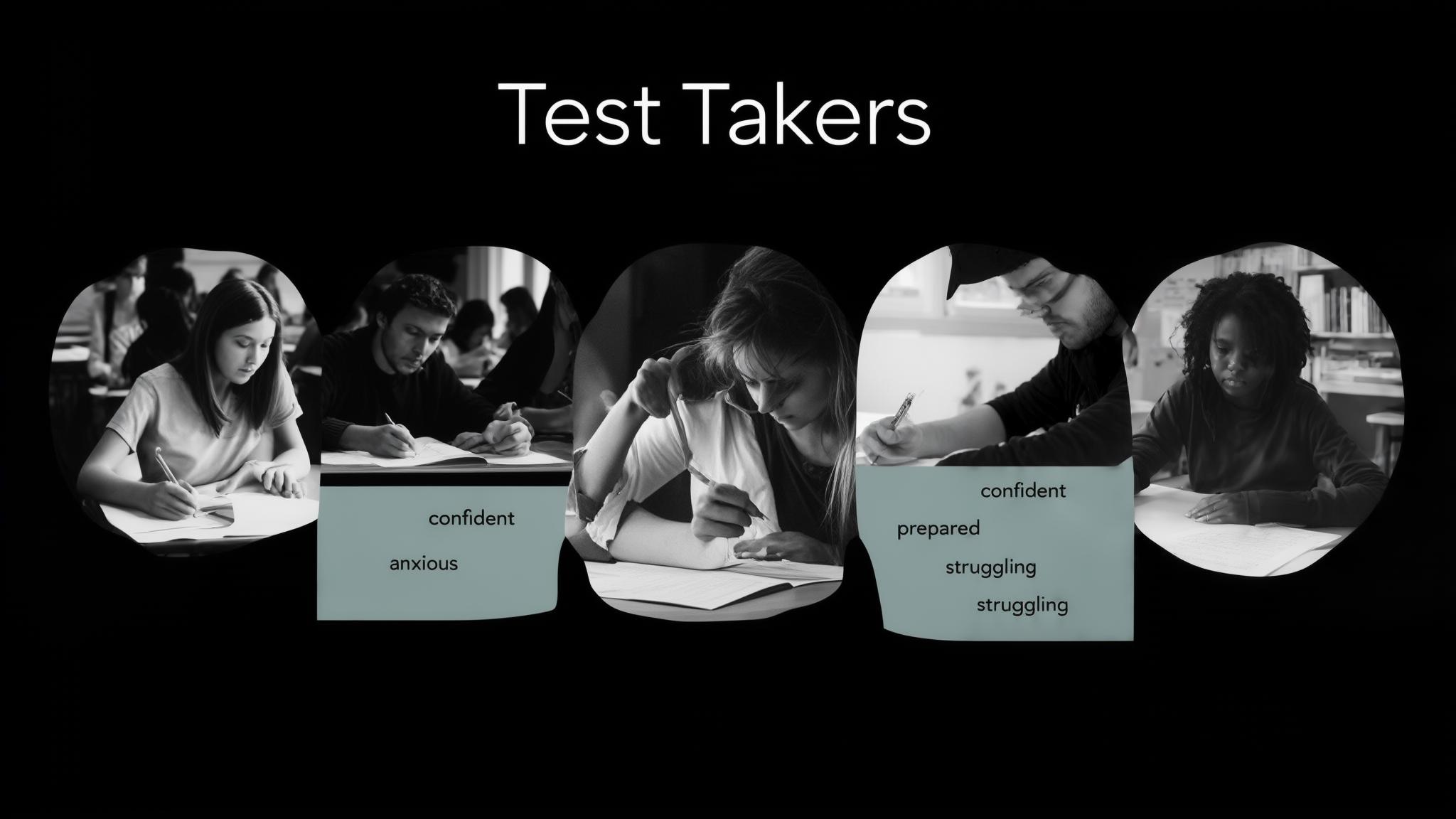Table of Contents

Understanding the Spectrum: Identifying Different Types of Test Takers

Standardized tests, classroom exams, and professional certifications are ubiquitous in modern society. They serve as gatekeepers to educational opportunities, career advancement, and even personal validation. However, the experience of taking a test is far from uniform. Individuals approach these assessments with varying levels of preparation, anxiety, and test-taking strategies. Understanding the diverse types of test takers is crucial for educators, test developers, and even the test takers themselves. This knowledge can inform more effective teaching methods, fairer test designs, and more personalized test-taking strategies. This article delves into the various categories of test takers, exploring their characteristics, strengths, weaknesses, and the implications for assessment outcomes. We’ll explore how recognizing these different types can lead to a more equitable and effective testing environment.
Categorizing Test Takers: A Multifaceted Approach
Classifying test takers isn’t a simple task. Individuals can be categorized based on a multitude of factors, including their preparation level, anxiety levels, test-taking strategies, and even their personality traits. Here, we’ll explore several key categories, recognizing that individuals may exhibit characteristics from multiple categories simultaneously.
The Prepared vs. The Unprepared
This is perhaps the most obvious distinction. The prepared test taker has dedicated sufficient time and effort to studying the material, practicing sample questions, and understanding the test format. They are confident in their knowledge and abilities. In contrast, the unprepared test taker has either neglected to study adequately or has procrastinated, leading to a feeling of being overwhelmed and underprepared. This lack of preparation often translates into lower scores and increased anxiety.
- Prepared Test Taker Characteristics:
- Strong grasp of the subject matter
- Familiarity with the test format
- Effective time management skills
- Lower levels of test anxiety
- Unprepared Test Taker Characteristics:
- Weak understanding of the subject matter
- Unfamiliarity with the test format
- Poor time management skills
- Higher levels of test anxiety
Case Study: A study by the College Board found a strong correlation between the amount of time students spent preparing for the SAT and their scores. Students who spent 20+ hours preparing consistently scored higher than those who spent less than 5 hours.
The Anxious vs. The Calm
Test anxiety is a significant factor that can impact performance. The anxious test taker experiences excessive worry, nervousness, and physical symptoms (e.g., sweating, rapid heartbeat) before, during, or after a test. This anxiety can interfere with their ability to recall information, concentrate, and think clearly. On the other hand, the calm test taker approaches the test with a sense of composure and confidence, allowing them to perform at their best.
- Anxious Test Taker Characteristics:
- Excessive worry and nervousness
- Difficulty concentrating
- Physical symptoms of anxiety
- Negative self-talk
- Calm Test Taker Characteristics:
- Composure and confidence
- Ability to focus and concentrate
- Positive self-talk
- Effective coping mechanisms for stress
Stats: Research indicates that approximately 20-40% of students experience test anxiety. This anxiety can lead to a significant decrease in test scores, even for students who are otherwise well-prepared.
The Strategic vs. The Non-Strategic
Test-taking strategies can significantly impact performance, regardless of knowledge level. The strategic test taker employs various techniques to maximize their score, such as prioritizing questions, eliminating incorrect answers, and managing their time effectively. The non-strategic test taker, in contrast, approaches the test in a more haphazard manner, often spending too much time on difficult questions or neglecting to review their answers.
- Strategic Test Taker Characteristics:
- Effective time management
- Ability to prioritize questions
- Use of elimination strategies
- Careful review of answers
- Non-Strategic Test Taker Characteristics:
- Poor time management
- Tendency to get bogged down on difficult questions
- Lack of elimination strategies
- Failure to review answers
Historical Context: The development of standardized testing in the early 20th century led to the emergence of test-taking strategies. As tests became more high-stakes, individuals began to develop and share techniques for maximizing their scores.
<!– /wp




